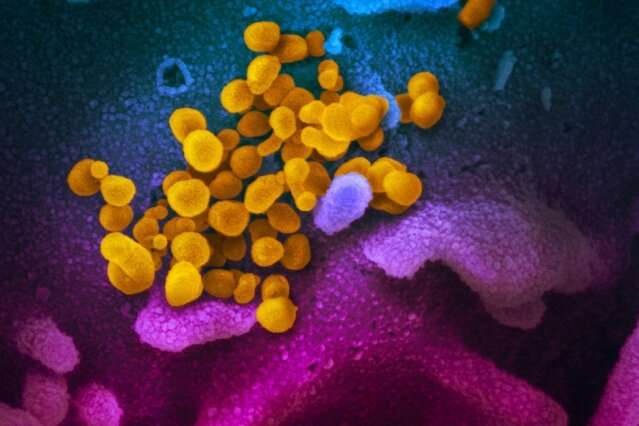Neutralizing antibodies protect against severe COVID-19

Understanding the body's immune response to SARS-CoV-2, the virus that causes COVID-19, is key to developing effective treatments and long-lasting vaccines. Of particular interest are neutralizing antibodies, which can block the virus from entering and infecting human cells, helping the immune system clear the virus and prevent future infections.
Scientists at the Ragon Institute of MGH, MIT and Harvard, publishing in the journal Cell, show that the potency of neutralizing antibodies which developed in COVID-19 patients was significantly reduced in those with severe or fatal disease compared to patients with milder infections.
"Potent neutralizing antibodies were associated with a positive outcome," says Alejandro Balazs, Ph.D., Ragon Core Member and lead author of the study. "We found that if a person made antibodies that were more effective at neutralizing the virus, they seemed to have better clinical outcomes."
Balazs's group developed an automated assay that could measure the potency of neutralizing antibodies in hundreds of COVID-19 patient samples at a time. They used this technology to examine samples from 113 COVID-19 patients, comparing milder cases to severe and fatal ones to understand the nuances of the antibody response.
They discovered that patients with severe or fatal COVID-19 had significantly less effective neutralizing antibodies than patients with milder cases. In fact, a model they built suggested that measuring the potency of these neutralizing antibodies could predict patient outcomes.
"By measuring the neutralization potency of a patient's antibodies," says Wilfredo Garcia-Beltran, MD, Ph.D., co-first author of the study, "we may be able to identify patients at risk of severe disease or death and use that to guide treatment options."
The neutralizing antibodies were also effective against the recently identified and widespread SARS-CoV-2 mutation known as D614G, indicating that the antibody responses that develop in most patients may provide protection even as the virus mutates. However, by modifying their assay to look at neutralization potency against a similar, pre-emergent coronavirus identified in bats, they found the antibody responses were largely ineffective, suggesting that this coronavirus strain may pose a threat if it ever crosses into humans.
"Though the ability to protect against mutated forms of the virus is promising," says Evan Lam, also a co-first author of the study, "these results suggest that, to prepare for potential future pandemics, we need to look towards developing vaccines capable of providing a broadly protective response."
More information: Wilfredo F. Garcia-Beltran et al. COVID-19 neutralizing antibodies predict disease severity and survival. Cell Published: December 15, 2020. doi.org/10.1016/j.cell.2020.12.015



















